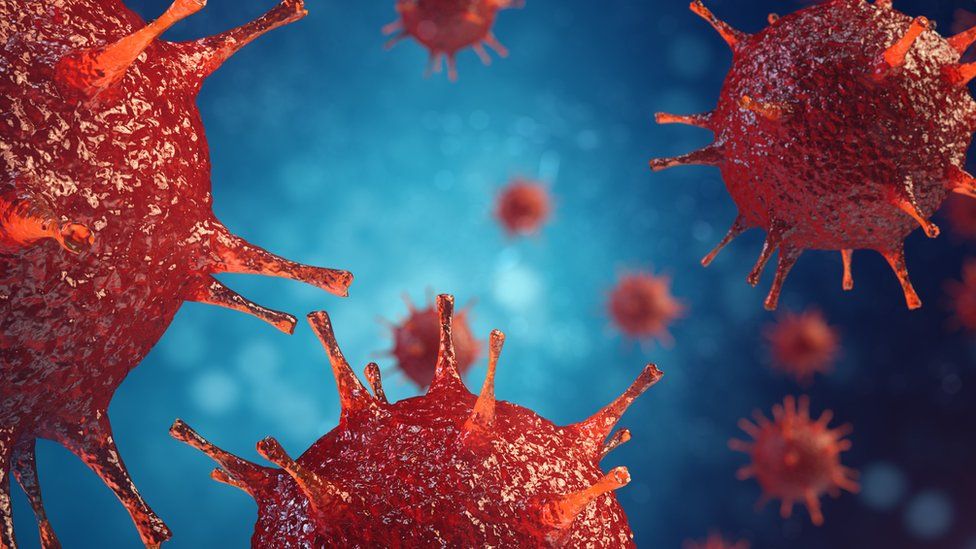In today's world, cancer is one of the most feared and deadliest diseases, affecting millions of people worldwide. While there are various treatments available for cancer, prevention is always better than cure. One of the ways to reduce the risk of cancer is by consuming a diet rich in antioxidants. Antioxidants are compounds that help protect our cells from oxidative damage caused by free radicals. Free radicals can cause damage to our DNA, proteins, and other cellular components, leading to cancer and other diseases.
In this post, we will discuss the top 5 roles of antioxidants in cancer prevention and treatment. We will explore how antioxidants can neutralize free radicals, reduce inflammation, boost the immune system, support chemotherapy and radiation therapy, and even slow tumor growth. Additionally, we will discuss the importance of consuming a diet rich in antioxidants and supplementing with antioxidant supplements (under medical supervision) to reduce the risk of cancer and improve treatment outcomes for those already diagnosed with cancer.
It is important to note that while antioxidants may have a positive impact on cancer prevention and treatment, more research is needed to fully understand their role. Nonetheless, understanding the importance of antioxidants can help us take proactive steps towards preventing cancer and improving treatment outcomes. So, let's dive in and explore the top 5 roles of antioxidants in cancer prevention and treatment.
1, Neutralizing free radicals.
Free radicals are unstable molecules that can cause damage to cells, leading to cancer and other diseases. When free radicals accumulate in the body, they can cause oxidative stress, which can lead to cellular damage and contribute to the development of cancer. Antioxidants are compounds that help neutralize these free radicals, preventing them from causing damage and reducing the risk of cancer development.
Antioxidants work by donating an electron to the free radical, stabilizing it and preventing it from damaging cells. Antioxidants can be found in a variety of foods, including fruits, vegetables, nuts, and seeds. Some examples of antioxidant-rich foods include blueberries, spinach, kale, walnuts, and almonds.
By incorporating these antioxidant-rich foods into your diet, you can help protect your cells from oxidative damage and reduce your risk of cancer. Additionally, speaking with your healthcare provider about antioxidant supplementation may also be beneficial. However, it is important to note that taking antioxidant supplements should be done under medical supervision, as high doses of certain antioxidants may have harmful effects.
In summary, antioxidants neutralize free radicals, which are known to damage cells and contribute to cancer development. By reducing free radical damage, antioxidants help prevent cancer from developing. Incorporating antioxidant-rich foods into your diet and speaking with your healthcare provider about antioxidant supplementation can help reduce your risk of cancer and improve your overall health and well-being.
2, Reducing inflammation.
Chronic inflammation is a known risk factor for cancer development. Inflammation is the body's natural response to injury or infection, but when it becomes chronic, it can cause damage to cells and contribute to the development of cancer. Antioxidants have anti-inflammatory properties that can help reduce inflammation in the body, which may help prevent cancer from developing.
Antioxidants work by neutralizing free radicals that can cause oxidative stress and inflammation in the body. By reducing inflammation, antioxidants can help prevent DNA damage and the development of cancerous cells. Some examples of antioxidant-rich foods that have anti-inflammatory properties include berries, leafy greens, turmeric, and ginger.
It's important to note that while antioxidants may have anti-inflammatory properties, more research is needed to fully understand their role in cancer prevention and treatment. Nonetheless, incorporating antioxidant-rich foods into your diet can help reduce inflammation and improve your overall health and well-being. Additionally, speaking with your healthcare provider about antioxidant supplementation may also be beneficial.
In summary, chronic inflammation is a known risk factor for cancer development. Antioxidants have anti-inflammatory properties that can help reduce inflammation in the body, which may help prevent cancer from developing. Incorporating antioxidant-rich foods into your diet and speaking with your healthcare provider about antioxidant supplementation can help reduce your risk of cancer and improve your overall health.
3, Boosting the immune system.
The immune system plays a crucial role in fighting cancer, and antioxidants can help support the immune system, making it more effective in recognizing and eliminating cancer cells.
Antioxidants work by protecting immune cells from oxidative damage, which can weaken their function. Additionally, some antioxidants, such as vitamin C and zinc, are essential for the proper functioning of the immune system. By ensuring that your body has adequate levels of these nutrients, you can help support your immune system and its ability to fight off cancer cells.
Some examples of antioxidant-rich foods that can help boost the immune system include citrus fruits, berries, broccoli, spinach, and almonds. Additionally, speaking with your healthcare provider about antioxidant supplementation may also be beneficial.
It's important to note that while antioxidants can help support the immune system, more research is needed to fully understand their role in cancer prevention and treatment. Nonetheless, incorporating antioxidant-rich foods into your diet and speaking with your healthcare provider about antioxidant supplementation can help support your immune system and improve your overall health and well-being.
In summary, antioxidants can help boost the immune system, which plays a crucial role in fighting cancer. By supporting the immune system, antioxidants may help the body fight off cancer cells more effectively. Incorporating antioxidant-rich foods into your diet and speaking with your healthcare provider about antioxidant supplementation can help support your immune system and reduce your risk of cancer.
4, Supporting chemotherapy and radiation therapy.
Chemotherapy and radiation therapy are common cancer treatments that can cause oxidative stress and damage healthy cells. This can lead to side effects such as fatigue, nausea, and inflammation. Antioxidants can help reduce the side effects of these treatments by protecting healthy cells from oxidative damage.
Studies have shown that antioxidant supplementation during chemotherapy and radiation therapy can help reduce the severity and duration of side effects. Some antioxidants, such as vitamin C, have also been shown to enhance the effectiveness of chemotherapy and radiation therapy by increasing their ability to kill cancer cells.
It's important to note that while antioxidant supplementation during cancer treatment may be beneficial, it should be done under medical supervision. Some antioxidants may interact with chemotherapy and radiation therapy, reducing their effectiveness. Therefore, it's essential to speak with your healthcare provider before taking any supplements.
In addition to antioxidant supplementation, incorporating antioxidant-rich foods into your diet can also help support your body during cancer treatment. Some examples of antioxidant-rich foods that can help reduce the side effects of chemotherapy and radiation therapy include blueberries, ginger, turmeric, and green tea.
In summary, antioxidants can help reduce the side effects of chemotherapy and radiation therapy by protecting healthy cells from oxidative damage. Additionally, some antioxidants may enhance the effectiveness of these treatments by increasing their ability to kill cancer cells. Incorporating antioxidant-rich foods into your diet and speaking with your healthcare provider about antioxidant supplementation can help improve treatment outcomes and reduce the risk of side effects.
5, Slowing tumor growth.
Some studies have suggested that certain antioxidants may have anti-cancer properties and can help slow the growth of tumors. However, more research is needed to fully understand the role of antioxidants in tumor growth and cancer treatment.
Some antioxidants, such as resveratrol, found in grapes and red wine, and epigallocatechin gallate (EGCG), found in green tea, have been shown to have anti-cancer properties in laboratory studies. However, it's important to note that the doses used in these studies are much higher than those that can be obtained through diet alone.
Additionally, some studies have suggested that antioxidant supplementation may not be beneficial in all cases. For example, some antioxidants may actually promote the growth of cancer cells in certain situations. Therefore, it's essential to speak with your healthcare provider before taking any supplements.
In addition to antioxidant supplementation, incorporating antioxidant-rich foods into your diet can also help support your body in fighting cancer. Some examples of antioxidant-rich foods that may help slow the growth of tumors include tomatoes, blueberries, broccoli, and dark chocolate.
In summary, some studies suggest that certain antioxidants may have anti-cancer properties and can help slow the growth of tumors. However, more research is needed to fully understand the role of antioxidants in tumor growth and cancer treatment. Incorporating antioxidant-rich foods into your diet and speaking with your healthcare provider about antioxidant supplementation can help support your body in fighting cancer.
In conclusion, antioxidants play a crucial role in cancer prevention and treatment. By neutralizing free radicals, reducing inflammation, boosting the immune system, supporting chemotherapy and radiation therapy, and slowing tumor growth, antioxidants can help reduce the risk of cancer and improve treatment outcomes. However, it is important to remember that consuming a diet rich in antioxidants and supplementing with antioxidant supplements should be done under medical supervision.
We hope that this post has helped you understand the importance of antioxidants in cancer prevention and treatment. By taking proactive steps towards incorporating antioxidant-rich foods into your diet and speaking with your healthcare provider about supplementation, you can reduce your risk of cancer and improve your overall health and well-being.
Thank you for watching, and please don't forget to like, share, and subscribe for more informative content.





Comments
Post a Comment